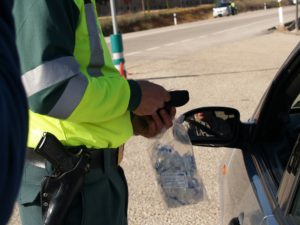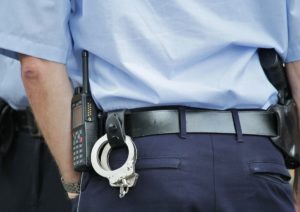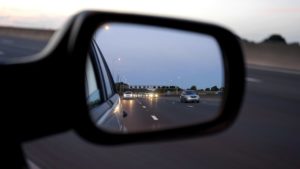3 Ways a Police Officer’s Body Camera Could Save You From a DWI Conviction – A Criminal Defense Attorney’s Perspective
This poignant quote from Washington Township, NJ, assemblyman Paul Moriarty comes on the heels of New Jersey’s new law that requires all police patrol vehicles to be equipped with dashboard cameras.
Moriarty was charged with driving while intoxicated (DWI) in 2012, but the charge was later dismissed when evidence from the patrol vehicle camera footage showed that the stop was illegal and that Moriarty was targeted by the officer who arrested him.
That officer is now facing a 14-count indictment which includes criminal charges of harassment, official misconduct, and falsifying a police report.
“Cameras don’t lie, and they don’t forget.”
Legislating Body Cameras
 Now, some New Jersey legislators are taking the idea of recorded law enforcement encounters one step further, seeking to mandate that all law enforcement officers wear a body camera to record their encounters with, and arrests of, citizens.
Now, some New Jersey legislators are taking the idea of recorded law enforcement encounters one step further, seeking to mandate that all law enforcement officers wear a body camera to record their encounters with, and arrests of, citizens.
The rationale behind the swiftly-growing momentum to equip officers with “body cams” is for the protection of both police officers and the public from false accusations and abuse. Some municipalities and other law enforcement bodies in our state already have at least a few body cams that are circulated among shifts, including:
- Atlantic City
- Egg Harbor Township
- The Cape May County Sheriff’s Office
- Evesham and Waterford Townships
Federal Action
 President Obama recently proposed a three-year, $263 million spending package with $75 million to help fund 50,000 body cameras, with state and local governments picking up the remainder of the cost. This doesn’t mean, however, that every officer in New Jersey will have a camera attached to his or her uniform anytime soon. But as experienced New Jersey DWI lawyers, we feel that day can’t come soon enough.
President Obama recently proposed a three-year, $263 million spending package with $75 million to help fund 50,000 body cameras, with state and local governments picking up the remainder of the cost. This doesn’t mean, however, that every officer in New Jersey will have a camera attached to his or her uniform anytime soon. But as experienced New Jersey DWI lawyers, we feel that day can’t come soon enough.
In the wake of national concerns over law enforcement practices following the police shooting of Michael Brown in Ferguson, Missouri, and the chokehold death of Eric Garner in New York City, many are quick to believe body cams will prevent similar future incidents.
Our state Legislature, however, is not jumping into such an undertaking hastily — it has established a task force to study and make recommendations on the use of body cameras for law enforcement officers. The task force must report its findings and recommendations to Governor Chris Christie and our state Legislature no later than June 30, 2015.
So What Could all of This Mean for You if You are Pulled Over and Charged With DWI?
1) Major discrepancies between an officer’s written report and what the camera footage shows could help get your case dismissed without a DWI conviction.
 Part of the job of being a DWI defense lawyer in New Jersey is to ensure that the officer who arrested and charged our client with DWI accurately reports what happened. Prosecutors and judges rely heavily upon officers’ reports in the prosecution and trial of DWI cases.
Part of the job of being a DWI defense lawyer in New Jersey is to ensure that the officer who arrested and charged our client with DWI accurately reports what happened. Prosecutors and judges rely heavily upon officers’ reports in the prosecution and trial of DWI cases.
If an officer’s lapse in memory, copying-and-pasting from other reports or bending the truth impact our client’s case, recorded footage can help us show the prosecutor the flaws in the case. For example, if an officer’s report states that a person arrested for DWI couldn’t stand up without swaying, was falling over, or could not perform the balance or field sobriety tests, but the footage shows the person standing normally and performing the tests properly, there is reason to doubt the officer’s version of the events.
This could result in our ability to convince the prosecutor to dismiss the charge.
2) Footage from the body cam could keep an officer truthful on the witness stand should your case go to trial.
 Recorded video footage is an extremely effective tool for a DWI defense attorney to use in cross-examining a police officer during the trial. Cross-examination is our opportunity as a criminal defense lawyer to ask the officer questions about his report, his version of the events, and what he testified to when the prosecutor asked him questions on the witness stand.
Recorded video footage is an extremely effective tool for a DWI defense attorney to use in cross-examining a police officer during the trial. Cross-examination is our opportunity as a criminal defense lawyer to ask the officer questions about his report, his version of the events, and what he testified to when the prosecutor asked him questions on the witness stand.
It is an incredibly useful way to find the truth. If we have to deal with a hostile, forgetful, or even biased officer at trial, playing the video and having the officer watch it can result in that officer giving more truthful answers to our questions. This, in turn, can lead the judge to find you not guilty of DWI.
3) Recorded footage could help keep any incriminating statements, admissions, or confessions you made to a police officer during questioning from being used against you at the trial.
 When it comes to New Jersey DWI defense law, one thing most people don’t realize is that admitting to drinking (“I had two beers,” “I had three vodka tonics,” etc.) can be used against you and add to the evidence that helps the prosecutor convict you of DWI.
When it comes to New Jersey DWI defense law, one thing most people don’t realize is that admitting to drinking (“I had two beers,” “I had three vodka tonics,” etc.) can be used against you and add to the evidence that helps the prosecutor convict you of DWI.
If you told the officer what you had to drink, the body cam footage could clear up any question about whether you were properly advised of your Miranda rights before making incriminating statements.
If you were under arrest, were being questioned by the officer, and were not informed of your Miranda rights before you made any statements about drinking, we could potentially keep those statements from being used against you at trial and save you from a DWI conviction.
